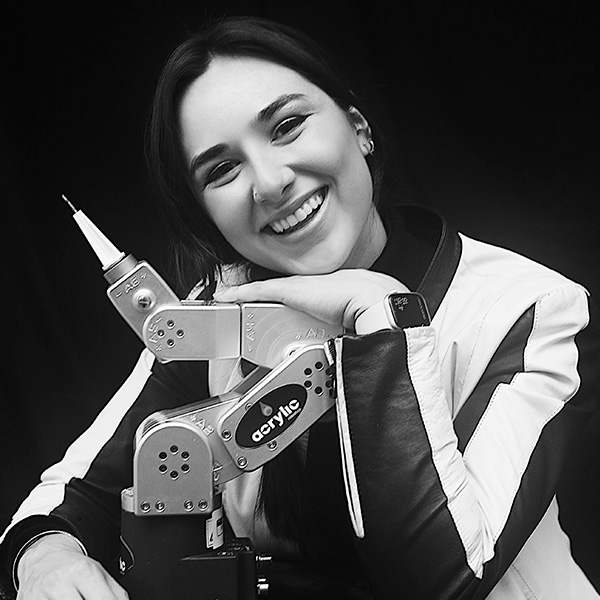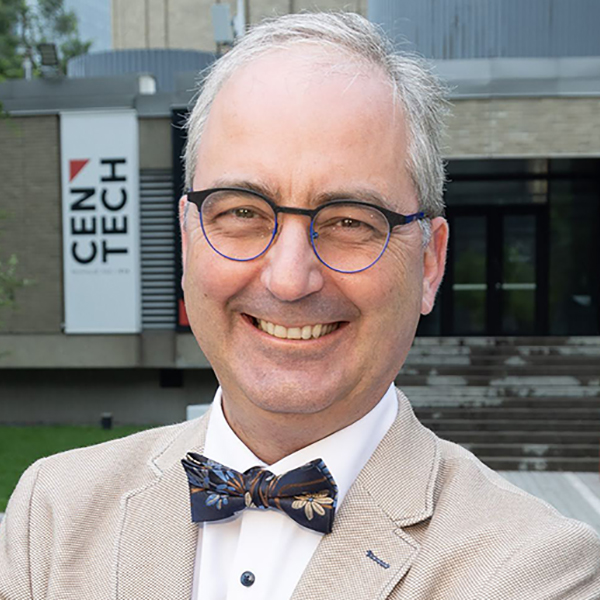If you live in Montreal, and if you have any interest whatsoever in the ethical implications of artificial intelligence, then you’ve probably encountered Abhishek Gupta. In fact, it would be pretty difficult to avoid him.
Gupta, BSc’15, a machine learning engineer at Microsoft, where he serves on the company’s AI ethics review board for commercial software engineering, has become a prominent voice in the discussions surrounding ethics and AI. He led Canada’s delegation at the AI for Good Global Summit in Geneva last year and has been a familiar presence at similar gatherings in Canada and around the world.
At first, though, the ethical issues surrounding AI were just a passing interest for him. His focus on AI mostly revolved around software applications and startup possibilities. Then he got a call from the United Nations.
“When I was building a startup that used deep learning to predict mental health treatment outcomes, I was invited to go to the UN’s AI for Good Global Summit [in 2017],” Gupta explains. “And the issues discussed were a clear demonstration to me that working on one startup could make a small impact, but the bigger crisis emerging was this issue of ethics in AI. That’s when I realized that I could play a part in shaping that discussion.”
As the founder of the Montreal AI Ethics Institute, Gupta has been doing just that.
“The institute was born out of my observations that there was an interest in AI ethics, but it was mostly talk and very little action,” says Gupta. His institute is “pushing on building practical tools, techniques, and frameworks that people can apply to their work immediately.” One example: an open-access evaluation framework for applying responsible AI principles to mental health applications, which he developed in collaboration with Carl Mörch, a psychologist and lecturer at the Université du Québec à Montréal.
In an article he co-wrote with Concordia University technology policy expert Fenwick McKelvey for the World Economic Forum, Gupta explains that “treating AI as inherently good overlooks the important research and development needed for ethical, safe and inclusive applications.”
Gupta regularly hosts the Montreal AI Ethics Meetup – a free semimonthly participatory discussion with pre-assigned readings. These meetups attract a diverse group of people, both demographically and intellectually: it isn’t rare to see an older French high school teacher and a fresh-faced university student debating the merits of self-driving cars with AI specialists completing their PhDs.
By moderating these discussions, Gupta is able to inch towards his goal of building public competence and clarifying some of the biggest issues related to AI.
Computers have played a big role in Gupta’s life since elementary school. “I was in grade two when we got our first computer. Back then, they cost almost half of what a brand new car cost, so it was a big deal to have one at home.” It quickly became more than a simple hobby.
“I realized I was good at this when I participated in the National Cyber Olympiad in India and I finished first nationally in grade six, out of 30,000 people,” says Gupta. “And I kept working on it right up until I left high school.”
While pursuing a degree in computer science at McGill, Gupta’s curiosity about AI was piqued by an introductory course on artificial intelligence taught by Joëlle Pineau, now the head of Facebook’s AI research lab in Montreal. His budding interest in entrepreneurialism found an outlet in the annual Dobson Cup competition (the Dobson Centre’s associate director Renjie Butalid is the Montreal AI Ethics Institute’s co-founder).
As Gupta’s involvement with AI grew, he started to worry that the most important debates about the technology were happening behind closed doors. Public AI events tended to be lectures instead of participatory discussions – and that largely left everyday citizens out of the conversation. Gupta’s AI Ethics Meetups have now attracted more than 1,400 participants since they began in 2017. Topics have ranged from the future of work to the inclusivity of smart cities.
“Montreal is a really special place for AI ethics because we’re right in the middle of cutting-edge technical research [here] while benefiting from strong Canadian values of diversity and inclusion,” says Gupta.
His efforts haven’t gone unnoticed. One of Gupta’s biggest supporters is Marc-Antoine Dilhac, a professor of philosophy at the Université de Montréal and the scientific co-director of the Montreal Declaration for the Responsible Development of AI, an effort aimed at establishing a set of ethical guidelines for those working in the AI field. “Some talk, others act. Abhishek belongs to the latter category,” says Dilhac.
“When we submitted the first draft of the Montreal Declaration for the Responsible Development of AI to online public consultation in November 2017, [Gupta] organized seven meetings in no time to review each of the seven proposed principles, and stirred the interest of the Montreal AI community around the MDRAI,” Dilhac says.
“He and his team at the Montreal AI Ethics Institute then prepared a substantive report on the MDRAI and have no doubt contributed to its success.”
The conversations that take place at the Montreal AI Ethics Meetups don’t exist in a vacuum, Gupta insists.
“People are taking these ideas back to their work and their communities, enhancing public competence at a larger level. And I play my role to make sure they’re heard too,” says Gupta. “When I was invited to the G7 Multistakeholder Conference on AI in December, I was able to share those community-generated insights with Canadian government officials and a global research community.”
This summer, the Montreal AI Ethics Institute will welcome the first 10 researchers to take part in a new 12-month fellowship focused on an interdisciplinary exploration of AI ethics. “We’ll work hand in hand with both technical and social scientists to solve real world problems in AI ethics. For example, one of the biggest issues is bias in data sets,” Gupta says. “How it’s collected, structured, and interpreted.”
Another issue that the institute is focusing on is a timely one – what it calls “the automation of propaganda in the political sphere.”
“The best defense we have against the malicious use of AI in politics is building more competent citizens,” says Gupta. “If we can get people thinking about how credible a source is and becoming more technologically literate, they can know what to look for and how to fight it.”
Late last year, Gupta was honoured at Montreal’s annual Startup Community Awards, winning the Community Organizer of the Year award.
“For us to shape [ethics in AI], we need to be informed and [to] participate in those discussions,” says Gupta.
The next Montreal AI Ethics Meetup takes place on March 21


